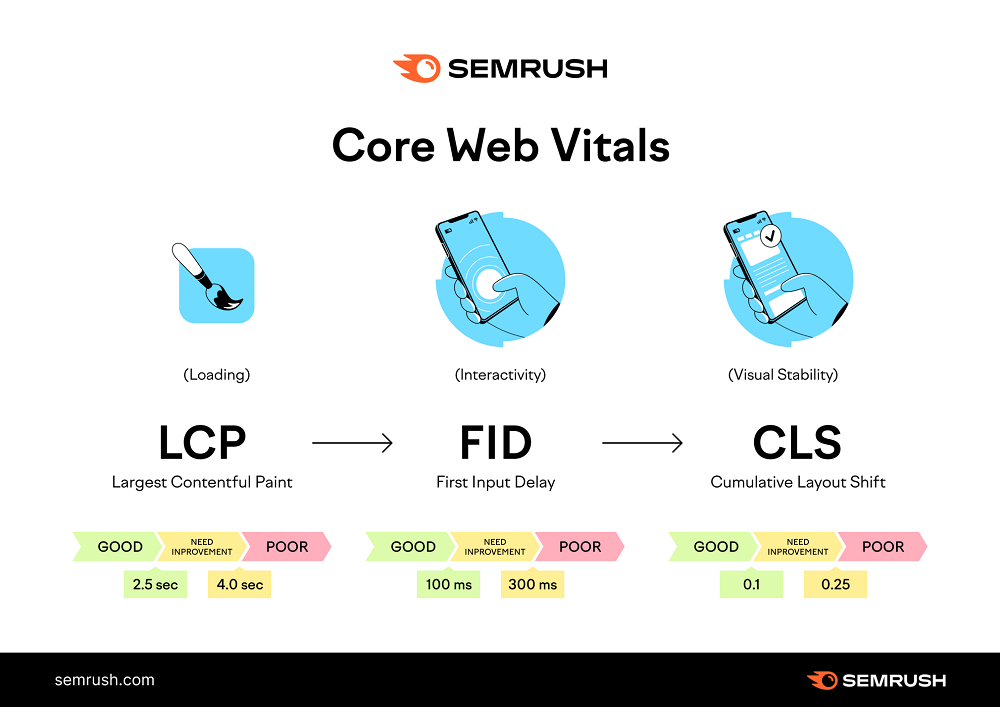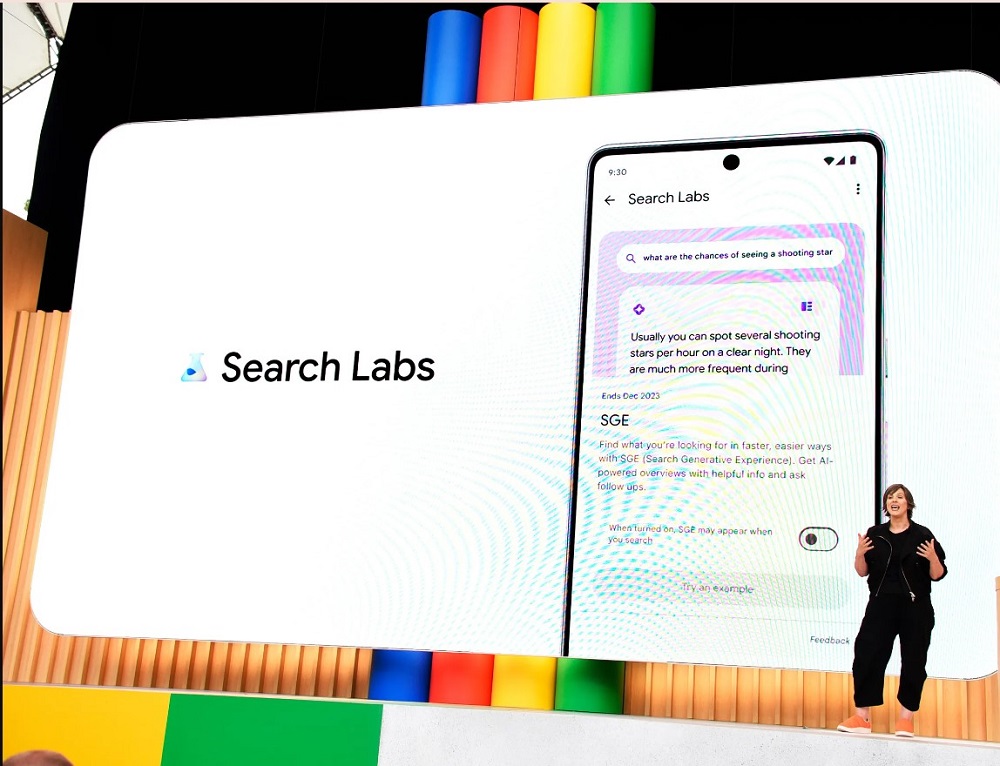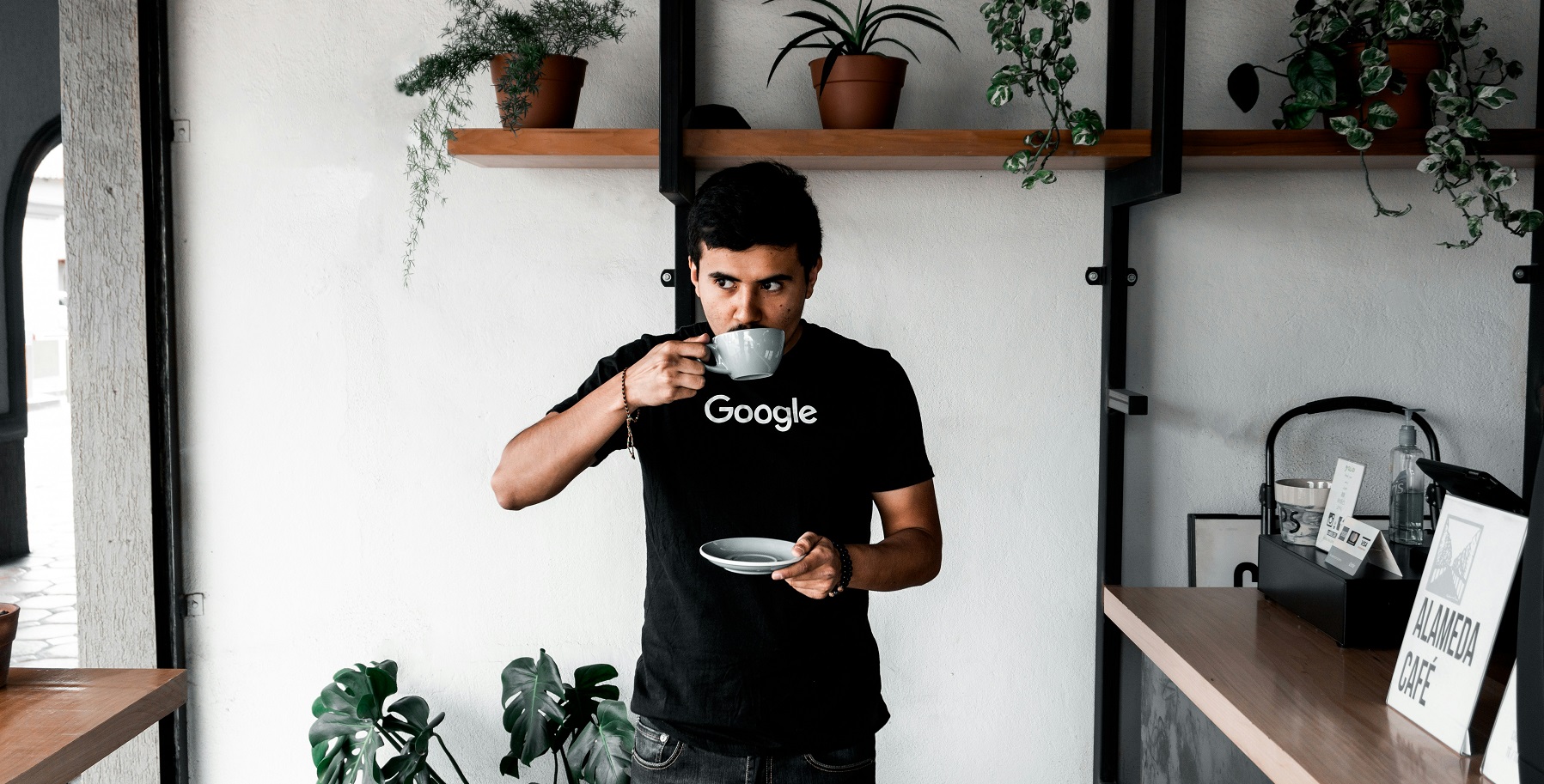As the world’s largest search engine, Google is pivotal when it comes to getting your site highly ranked, and attracting the right leads for your business. As a leading financial services marketing agency, Contentworks provides Google SEO and AdWords services to clients. Here’s a quick look at Google SEO in 2024.
Google Reverses Cookies Ruling
We’re happy to say Google has announced it will not be phasing out third-party cookies as previously planned. This decision should be met with a resounding cheer from website owners, digital marketers, and SEO practitioners who were dreading the phase out. We will be talking more about cookie tracking in an upcoming blog. But for now… breathe!
Web Loading Speed

Page speed matters. This is because it’s a direct ranking factor for both desktop and mobile search results. The faster your website loads, the more likely it is to rank higher in the search engine results pages (SERPs). Google uses specific metrics to determine a page’s website speed. These include:
- Largest Contentful Paint (LCP) – measures loading speed
- Cumulative Layout Shift (CLS) – measures visual stability
- Interaction to Next Paint (INP) – measures page responsiveness
To win the web speed race, you must analyse these metrics regularly via tools like Google’s Page Speed Insights and Google Search Console. This will help you to identify areas that need improvement and take actionable steps to enhance a site’s performance and create a seamless user experience. This is all great for SEO.
Keywords/Keyphrases
When it comes to Google SEO, keywords help to attract users searching for products or services like yours. Less than 1% of users make it to the second page of the SERPs, so being as high up on that first page and drawing in organic traffic matter. But how should keywords be used in 2024?
95% of keywords have a volume of 10 or less searches per month. It’s therefore essential to use a keyword research tool for insights into the best keywords for your industry. Perhaps unsurprisingly given the popularity of voice search, 14.1% of all keywords are phrased as questions. It’s not uncommon for users to use words such as, ‘how,’ ‘what,’ ‘where,’ and ‘who while searching, so this is something to keep in mind when creating your keyword strategy.
Furthermore, long-tail keywords have a conversion rate of around 36%. This is higher than short-tail keywords. Users tend to use longer keywords whenever they’re ready to make a purchase and therefore it’s important to research user intent for the right keyword phrases. As 15% of searches are brand new searches that have never been searched by Google, the trick with keyword implementation is to make your content as relevant as possible. Make it clear to Google what your page is about but don’t be afraid to use both short and long-tail keywords creatively, thinking about how a user might write them in a search query.
And it goes without saying, your content should be written by humans! Google is cracking down on AI content and content that reads like it’s written for SEO!
Refreshing Existing Content
To maintain your rankings in 2024, you must update your content regularly. Google places a higher ranking on sites that are updated frequently. So, be sure to:
- Refresh old and out-of-date articles with new stats, new industry information, refreshing insights and valuable ideas but try to avoid deleting urls as this isn’t a Google friendly practice.
- Update headers, titles and the body of content with freshly researched keywords and phrases to secure better rankings.
- Include high-quality backlinks to improve the ‘street cred’ of your content. The more quality sites you’re associated with, the more Google is likely to view you as reputable.
- Link internally where possible. This helps Google to find, index and understand all of the pages on your website.
- Carry out regular content audits to identify out of date or irrelevant blogs, articles and also landing pages.
- Repurpose content into new formats and post on new platforms to keep it fresh. For example, you can turn a simple blog into a video, podcast, infographic or social post.
Video SEO
For your videos to rank in search, particularly video search, you must understand video SEO. Google doesn’t see videos as unique indexible entities with their own URLs but as media elements within an existing page. So, you must ensure the page it’s on qualifies as a video page to be indexed. You can do this by providing the page with the following elements.
- A crawlable video player – the video should show up automatically without any action from the user.
- Video as the main content – if someone clicks on a video snippet they expect to see a video and not a bunch of text. So, for your page to qualify as a video page, the video must be the main content type. Embed the video at the top of the page to make this possible and include as little other text or media as possible.
- Structured data – provide Google with structured data so it can see what your video is about. Include a title, description, thumbnail, captions, transcript, duration and upload data. Adding ‘key moments’ will also help you hog more space in the SERPs.
User Experience
Google’s AI-based Search Generative Experience is all about providing users with the best experience possible. And this is at the forefront of Google SEO. The goal is to serve the very best content for each and every query. So when it comes to rankings, think about how to improve the user experience of your site. Here are some top tops:
- All Pages should load fast, which brings us back to those Core Web Vitals mentioned above. Use analytical tools to detect issues.
- Ensure you embrace a mobile-first design. After all, Google searches on mobile dominate, with 63% of searches occurring on mobile in the US.
- Prioritise site accessibility. Think about those with disabilities and create an inclusive environment. Embrace compatibility with assistive technologies such as screen readers, voice recognition software and keyboard navigation tools.
- Eliminate distractions. Make sure your text is fully optimised, easy to read and to-the-point. Place calls-to-action in clear view above the fold.
- Embrace a user-centred design. You can do this by looking at site interaction and user behaviour. Where do people click most, where do they hover? Send out surveys asking for feedback if necessary.
Artificial Intelligence
Google is experimenting with AI in Search. The Search Generative Experience (SGE) might be in its experimental phase, but it’s designed to enhance a user’s access to information. It can compare and contrast content, provide summaries, pull to-do lists, recommendations and how-tos, and even lay out multiple recipes side by side.

SGE content is pulled to the top of Google. And therefore when it comes to optimising for AI-based search you should try to be relevant, factual, to-the-point and set out your content in a way that can be easily grabbed and presented. Lists, bullet points and neat summaries of complex topics are likely to work well.
Google’s reimagined search still involves typing a query, and it still responds with links to websites, snippets of content, and ads. But the top of the page may now feature text synthesized by AI that pulls from information found on different sources across the web, and link to those webpages.
Personalised Content
Today’s consumer expects personalisation when interacting with a brand online, with 71% expecting it every time. The more unique and personalised your content is, the more likely people will come back to your brand, or engage with it longer. Improved bounce rates can positively impact rankings, so it’s a win-win.
- Produced local-SEO optimised content for specific regions. Adjust for local climate, events, regulations and so on.
- Appeal to different generations by adjusting tone, language, themes and recommendations. Create buyer personas to help you with this.
- Address specific pain points of customers. Provide content that’s useful and resolves their unanswered questions.
Google SEO is constantly evolving so it’s important to work with Google certified consultants to stay focused on SEO, PPC, AdWords and keyword optimisation. Book a free Zoom with our team to discuss your SEO.
